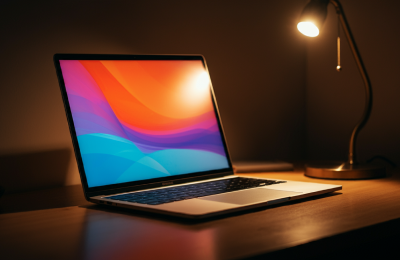Buying a laptop in Nigeria can be a daunting task due to the diverse range of options available, varying prices, and specific challenges such as warranty issues and power supply considerations. Whether you’re a student, a professional, or a casual user, selecting the right laptop requires careful thought. This blog post outlines the key factors to consider when purchasing a laptop in Nigeria, helping you make an informed decision.
1. Define Your Needs
Before stepping into a store or browsing online, identify what you’ll use the laptop for:
- For Students: Look for affordability, portability, and a decent battery life. Basic specifications like 4GB to 8GB of RAM and an Intel Core i3 processor or equivalent AMD processor should suffice.
- For Professionals: If you’re working in fields like graphic design, video editing, or software development, prioritize high performance. Opt for laptops with powerful CPUs (Intel Core i5/i7 or Ryzen 5/7), dedicated GPUs, and at least 16GB of RAM.
- For Casual Users: If your needs are limited to web browsing, watching videos, and basic tasks, an entry-level laptop with 4GB of RAM and integrated graphics will be enough.
Knowing your requirements will prevent you from overspending on unnecessary features.
2. Budget and Price Range
Laptop prices in Nigeria can vary significantly based on brand, specifications, and availability. Create a realistic budget and explore options within that range. Remember:
- Entry-Level Laptops: N150,000 to N250,000.
- Mid-Range Laptops: N250,000 to N500,000.
- High-End Laptops: N500,000 and above.
Factor in additional costs such as laptop bags, software, or accessories. Buying during sales events or promotions can also help save money.
3. Operating System
The operating system (OS) significantly impacts your user experience. Consider:
- Windows: A versatile OS suitable for most users, with compatibility for a wide range of software.
- macOS: Exclusive to Apple laptops (MacBooks), offering excellent performance and reliability but at a premium price.
- ChromeOS: Found in Chromebooks, ideal for basic tasks and online use, but limited in offline capabilities.
- Linux: Best for tech enthusiasts or developers who need an open-source platform.
Choose an OS that aligns with your familiarity and software requirements.
4. Specifications to Prioritize
Understanding the key specifications will ensure your laptop meets your needs:
- Processor (CPU): The CPU is the brain of your laptop. For basic tasks, go for Intel Core i3 or AMD Ryzen 3. For multitasking and professional use, consider Intel Core i5/i7 or AMD Ryzen 5/7.
- RAM: A minimum of 8GB is recommended for smooth multitasking. For intensive tasks like video editing, aim for 16GB or more.
- Storage: SSDs (Solid-State Drives) are faster and more reliable than HDDs. Look for laptops with at least 256GB SSD storage.
- Graphics: Integrated graphics are sufficient for most users, but gamers and creative professionals should opt for dedicated GPUs (e.g., NVIDIA or AMD).
- Battery Life: Consider laptops with a minimum of 6-8 hours of battery life, especially if you’ll be using it in areas with limited power supply.
5. Screen Quality and Size
The screen affects your overall user experience:
- Size: A 13- to 15-inch screen is ideal for portability and usability. Larger screens (17 inches) are better for tasks like video editing but are less portable.
- Resolution: Opt for Full HD (1920×1080) for clear and sharp visuals. Higher resolutions like 4K are ideal for professionals but come at a higher cost.
- Panel Type: IPS panels offer better color accuracy and viewing angles compared to TN panels.
6. Build Quality and Portability
Consider the durability and weight of the laptop:
- Build Materials: Aluminum or magnesium builds are more durable than plastic ones.
- Portability: If you’ll frequently carry the laptop around, prioritize lightweight options (1-2kg).
- Keyboard and Touchpad: Ensure the keyboard is comfortable for typing and the touchpad is responsive.
7. Power Supply and Durability in Nigerian Conditions
Given Nigeria’s power challenges, consider:
- Battery Life: Look for laptops with long-lasting batteries and fast-charging capabilities.
- Surge Protectors: Use surge protectors or UPS devices to safeguard against voltage fluctuations.
- Durability: Choose laptops with solid build quality to withstand frequent travel and rough handling.
8. Warranty and Support
Warranty and after-sales support are crucial:
- Warranty: Aim for laptops with at least a one-year warranty.
- Support Centers: Check if the brand has authorized service centers in Nigeria for repairs and maintenance.
9. Buying Options
Purchase your laptop from reliable sources:
- Physical Stores: Visit trusted stores like Slot, Computer Village (Ikeja), or other reputable electronics outlets.
- Online Stores: Platforms like Jumia, Konga, and Amazon offer convenience but ensure you buy from verified sellers.
- Refurbished Options: If on a tight budget, consider certified refurbished laptops from trusted dealers.
10. Future-Proofing
Think long-term when making your purchase:
- Choose specifications that will remain relevant for at least 3-5 years.
- Opt for laptops with upgradeable components like RAM or storage.
- Prioritize brands known for reliability, such as Dell, HP, Lenovo, or Apple.
Conclusion
Buying a laptop in Nigeria requires balancing your needs, budget, and the unique challenges of the local environment. By carefully considering factors like performance, durability, and support, you can make a smart investment that serves you well for years. Whether it’s for study, work, or entertainment, the right laptop will enhance your productivity and experience. Take your time, compare options, and make an informed decision.

